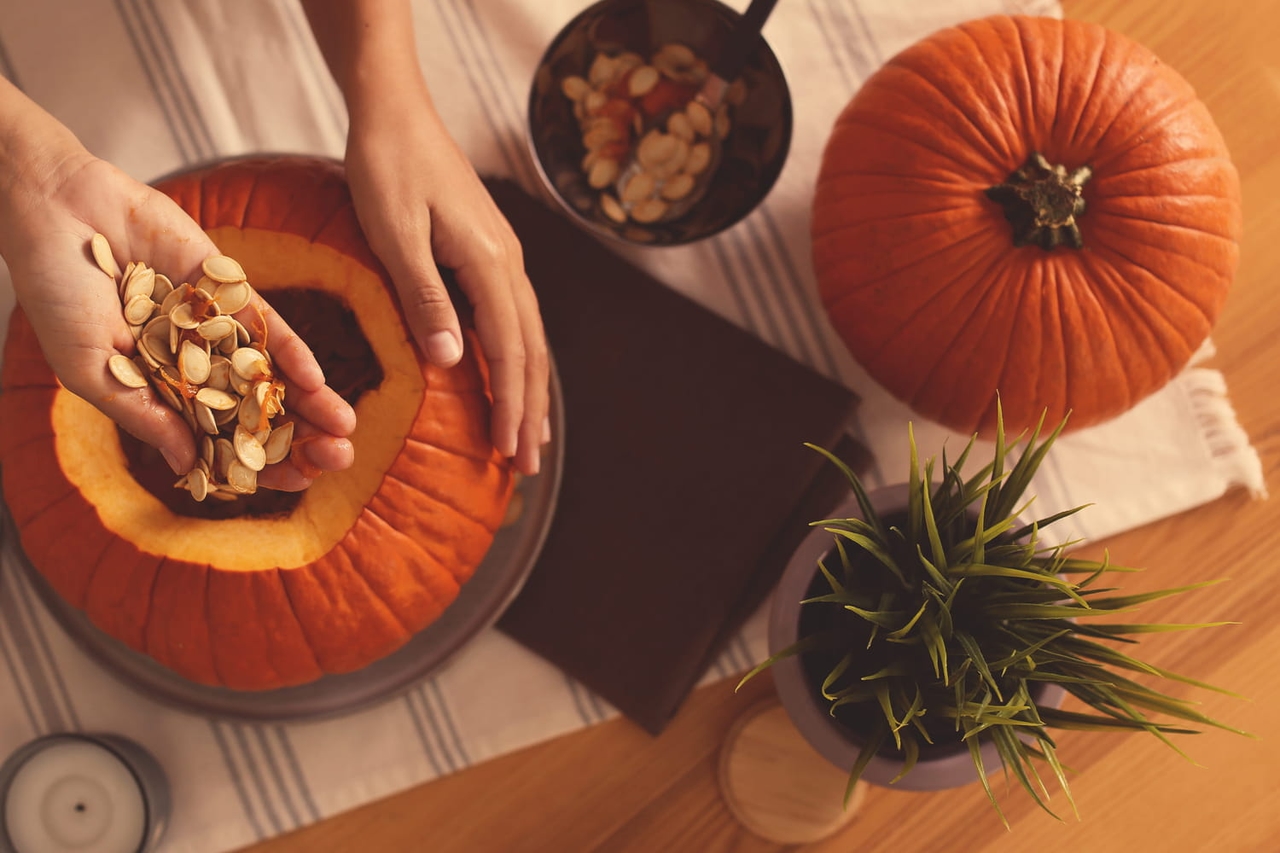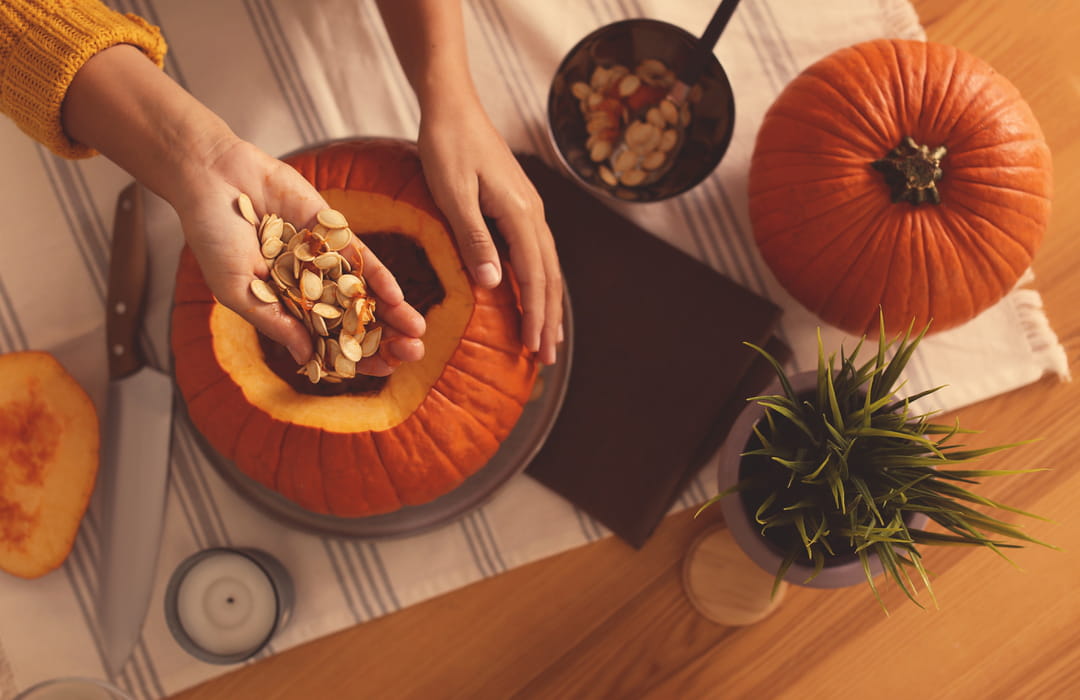What are the benefits of pumpkin?

It's the star of autumn, and especially Halloween: the pumpkin and its squash cousins like the kabocha squash or butternut squash! Beyond the decorative "Jack O' Lantern" pumpkin or Grandma's traditional soup, what secrets does the pumpkin hold within its flesh? As you'll see, the benefits are numerous because, in addition to being delicious (when well-chosen and well-prepared), it's packed with health benefits.
In the kitchen, pumpkin lends itself to a multitude of preparations. It can, of course, be enjoyed in a warming, creamy soup in the autumn, but it can also be roasted in the oven with a drizzle of olive oil and spices. You can also use it to make an autumnal potato gratin. Simply replace the traditional potatoes with pumpkin. Another idea is to incorporate it into a savory cake with ham.

But pumpkin is also excellent in desserts! Americans love it in their traditional and timeless pumpkin pie. For the past few years, France has also been embracing the "pumpkin spice latte," adding a little pumpkin flesh to the base of a latte for a touch of autumnal sweetness.
The pumpkin's first secret is particularly visible: its bright orange flesh reveals its high beta-carotene content, a valuable antioxidant. Beta-carotene is a pigment that gives the pumpkin its characteristic color and is converted into vitamin A in the body. As we know, vitamin A is essential for the health of the eyes, skin, and immune system.
Pumpkin also contains other beneficial antioxidants such as vitamins C and E, as well as minerals like potassium and magnesium. Antioxidants help fight oxidative stress and inflammation in the body. Nutritionally, pumpkin is low in calories and high in fiber, making it an excellent choice for weight loss. Fiber promotes satiety, aids digestion, and contributes to a healthy balance of gut flora.
Finally, don't throw away the pumpkin seeds! They're packed with goodness too. Rich in unsaturated fatty acids, plant-based protein, iron, zinc, and magnesium, they make a healthy and nutritious snack. You can roast them in the oven for a few minutes for a delicious and crunchy treat. With its low calorie content and low glycemic index, pumpkin fits easily into a balanced diet.
However, be aware that some people may be allergic to them, especially those already allergic to other cucurbits such as melon or cucumber. Allergies most often manifest as skin reactions. Furthermore, pumpkin seeds are said to have a mild diuretic effect due to certain compounds. It is therefore best to introduce these seeds gradually into your diet.
L'Internaute




